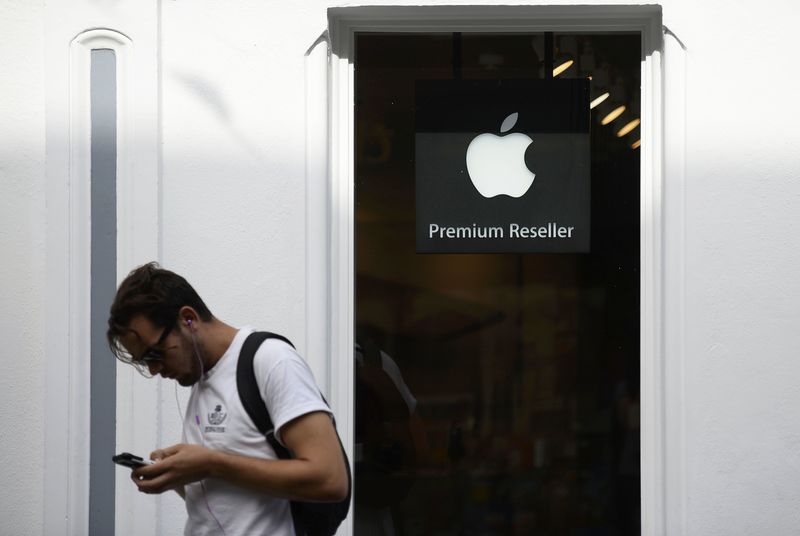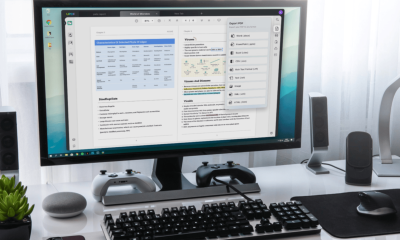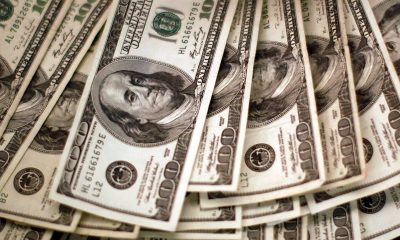Investing
Take Five: Big or bigger?

© Reuters. FILE PHOTO-A general view of the Bank of England in London, Britain July 12, 2023. REUTERS/Anna Gordon/File Photo
(Reuters) -The Bank of England is the last of the big central banks to meet before the summer break gets truly under way, but euro zone data, U.S. jobs numbers and rumblings in the China property sector will keep markets busy as the earnings season winds down.
Here’s a look at the week ahead in markets from Li Gu in Shanghai, Amanda Cooper, Lawrence White and Dhara Ranasinghe in London, and Ira Iosebashvili in New York.
1/KEEP CALM AND BET ON STERLING
When the Bank of England meets on Aug 2, policymakers will finally have something to cheer about. Inflation hasn’t accelerated since February and there are signs that widespread price pressures are starting to abate.
But the BoE has been routinely accused of being behind the curve. It’s taken policymakers eight months to bring inflation down to 7.9%, from a peak of 11.1%. It took the ECB half that time to achieve the same rate of decline.
Money markets show traders think the odds are split on a 25-bp or a 50-bp hike. Investors are all too aware of how much more work the BoE has to do. After all, they’re holding the most valuable bullish bet on sterling since 2014.
Meanwhile, markets will also work through the fallout from the Bank of Japan’s move on Friday to make its yield curve control policy more flexible and water down its commitment to defend a cap on long-term interest rates.
2/ DATA-DEPENDENT
The Fed appears to have gone into data-dependent mode after hiking rates 25 bps on Wednesday to 5.25-5.50% – a level last seen just before 2007 housing crash. Between now and its next meeting in September, the Fed gets two sets of jobs data – and inflation numbers – to pore over.
First up is July non-farm payrolls on Aug. 4.
Resilient jobs growth has been a key factor in shaping investors’ benign outlook on the U.S. economy, a view that – along with ebbing inflation – has helped drive rallies in stocks and other risk assets this year.
Signs of an overly robust labour market could spark worries that the Fed needs to keep tightening monetary policy to contain inflation. Conversely, a steep drop-off in employment might rekindle recession fears.
Megacaps Apple (NASDAQ:) and Amazon (NASDAQ:) meanwhile are expected to report earnings on Aug. 3.
3/ GONE TILL SEPTEMBER
Markets are impatient. The ECB just hiked rates – as expected – again and the “will they or won’t they” lift rates in September debate is well under way.
So even as rate-setters head for a break, data will still push around rate bets, starting with Monday’s preliminary estimate of July euro zone inflation and second quarter GDP.
Overall inflation is now just half its October peak, but harder-to-break underlying price growth is hovering near historic highs and may have even accelerated again. Both measures remain above the ECB’s 2% inflation target.
Economists polled by Reuters forecast the euro zone economy grew 0.2% in Q2. GDP was flat in Q1 versus the previous quarter.
The data could strengthen the case for a September hike. Not so fast, ECB doves might argue. After all, forward-looking indicators such as PMIs are pointing decidedly lower.
4/HOPING TO HSBC SOME IMPROVEMENT
HSBC (LON:) on Tuesday closes out a mixed reporting season for big European banks, with investment banking revenues still dwindling as deal activity slumps, while rising rates lift more staid business lines such as corporate and retail banking.
Investors are hoping for a fresh share buyback after HSBC announced a $2 billion offer last quarter and resumed paying quarterly dividends for the first time since 2019. They will also look for an increase to the bank’s conservative-looking $34 billion net interest income forecast.
HSBC investors have long awaited the promised land, where rising central bank interest rates lift margins from lending against its vast deposit base, but the picture is clouded in Britain by political pressure to pay stressed savers more.
And China’s precarious economic recovery could in turn revive fears about HSBC’s nearly $10 billion exposure to the overextended commercial real state sector.
5/NOT SO HOT PROPERTY? Hopes for stimulus from Beijing for China’s embattled property sector are alive and well, if property shares in Hong Kong and the mainland at multi-week highs are anything to go by.Removing the phrase “houses are for living, not for speculation” from a readout of the powerful politburo meeting fuelled those hopes, but there’s been a distinct lack of concrete detail. A booming property market is seen as key to igniting lacklustre missing consumer spending in post-pandemic China. But Beijing will be wary. Memories of previous property sector bubbles are fresh and developers are still feeling the fallout. Sino-Ocean Group is considering a debt deferral, Dalian Wanda Commercial Management almost defaulted and Country Garden faces mounting payment pressures in the coming months.
Data released on Monday showed China’s manufacturing activity fell for a fourth straight month in July while the services and construction sectors teetered on the brink of contraction, threatening growth prospects for the third quarter and confirming the need for stimulus, analysts said. More data is out in the days to come.
Read the full article here

-

 Side Hustles5 days ago
Side Hustles5 days ago5 Things That Could Significantly Impact Your Company in 2025
-

 Investing5 days ago
Investing5 days agoNFI Group surge after board reshaped with new appointments, chairperson By Investing.com
-

 Side Hustles6 days ago
Side Hustles6 days agoHow Failing 22 Times Paved the Way to My Success
-

 Passive Income4 days ago
Passive Income4 days ago3 Challenges Entrepreneurs Will Face in 2025
-

 Investing6 days ago
Investing6 days agoApple Siri Settlement: Who Is Eligible for a Cash Payout
-

 Side Hustles6 days ago
Side Hustles6 days ago3 Strategies to Make Your Next Campaign Go Viral
-

 Side Hustles4 days ago
Side Hustles4 days agoThe Canadian Media Lawsuit That Could Reshape Tech’s Future
-

 Passive Income6 days ago
Passive Income6 days agoThe AI Tool Your Competitors Don’t Want You to Know About


















